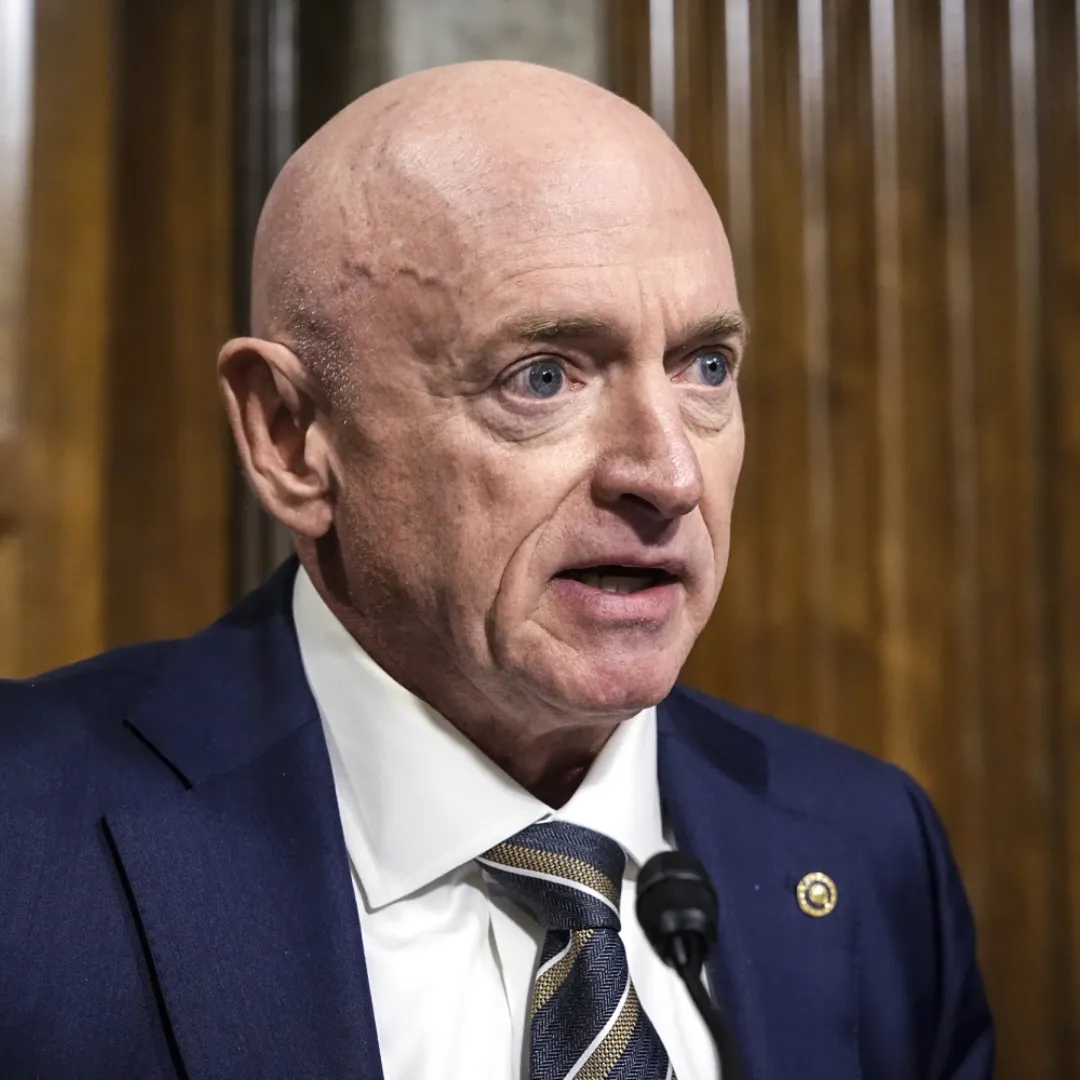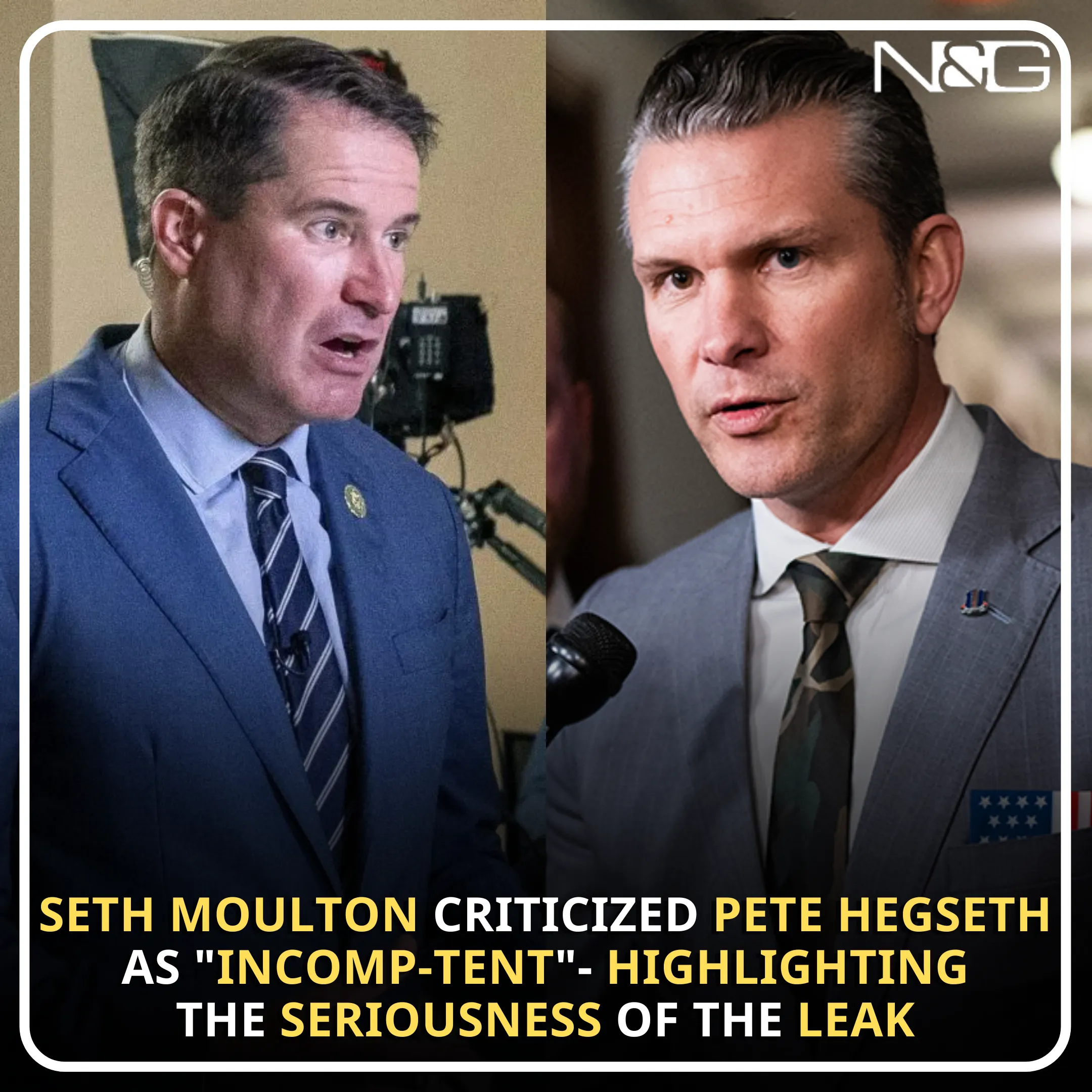
Amid the ongoing political turbulence surrounding the Signal scandal, Democrats have found a surprising opportunity to regroup and regain their footing, thanks to the controversy involving members of President Donald Trump’s administration.
The issue centers around a Signal group chat that included sensitive military information about a planned attack on Houthi rebels in Yemen, which inadvertently included Jeffrey Goldberg, the editor-in-chief of The Atlantic.
This misstep has led to a wave of scrutiny for Trump’s national security team and opened the door for Senate Democratic Leader Chuck Schumer and his party to focus attention away from their internal struggles and onto the growing chaos within the Republican ranks.
For Senate Democrats, Signalgate has been a welcome distraction. The incident, where Goldberg found himself mistakenly added to a group chat with Trump administration officials discussing military strategies, has shifted the focus away from ongoing questions about Schumer’s leadership.
It also allowed Schumer to avoid facing tougher questions about his decision to advance a GOP funding bill that many Democrats opposed, potentially jeopardizing his standing within the party.
As the controversy unfolded, Schumer found himself in a position where he no longer had to answer for Democratic infighting and dissent within his ranks. Instead, the focus shifted to the chaos within the Trump administration.
The timing of the Signal scandal could not have been more fortuitous for Schumer and his colleagues.

Just hours before members of the Senate were returning to Washington after their recess, questions about Democratic divisions and Schumer’s decision to support a GOP funding bill were poised to dominate the conversation.
However, the publication of the The Atlantic article, revealing the contents of the Signal chat, immediately upended the news cycle. For a brief moment, Schumer was able to step back from the intense scrutiny he had faced for his previous decisions and shift the narrative to the Trump administration’s handling of classified information.
Senate Democrats were quick to seize on the opportunity. While they refrained from openly celebrating their newfound focus, some did acknowledge the shift in momentum. “None of it makes me happy,” said Sen. John Hickenlooper (D-Colo.), referring to the Signal scandal.
“But it certainly has changed the tenor of the discussion, and it took the frustration and sense of loss that people in Colorado were feeling … and given it more of a focus.”
While Democrats used the scandal to reassert themselves, Republicans were left scrambling to respond to the growing fallout.
GOP senators, many of whom were already facing internal divisions, found themselves answering difficult questions about why Trump’s team, including high-level officials traveling overseas, had been using Signal to discuss sensitive military operations.
The leak of such information—especially with the inclusion of a journalist in the conversation—was perceived as a major breach of protocol, and the Republican Party found itself on the defensive.

This scandal exposed the deep fractures within the Trump administration, as officials tried to downplay the severity of the situation. National security adviser Mike Waltz and Defense Secretary Pete Hegseth were among those implicated in the chat.
They initially denied that any classified information had been shared through the encrypted messaging platform, but the release of additional screenshots revealed detailed information about the planned military strike in Yemen.
This sparked a wave of public criticism, particularly from Democrats, who called for investigations and for Hegseth’s resignation.
However, despite the pressure, many Republicans, including Lankford, refused to take a strong stand against Hegseth or the administration’s handling of the matter.
Lankford dismissed the idea of a resignation as “overkill,” a sentiment that mirrored the party’s overall reluctance to hold Trump’s team accountable for their actions.
This reluctance to act highlighted the growing divide between Democrats, who were pushing for greater accountability, and Republicans, who seemed more concerned with minimizing the damage to their party’s image.
As the weeks passed, the Signal scandal began to give Senate Democrats a renewed sense of purpose. In the wake of the internal frustrations over Schumer’s decision to support the GOP funding bill, the Signal controversy provided something for Democrats to rally around.
Senator Peter Welch (D-Vt.) called it a “moment” that helped unify the party, pointing out that the scandal gave Democrats a platform to show their base that they were willing to stand up to Trump. “It’s very helpful,” Welch said. “I also think it was some clarity and unity coming out of the division we had.”

For many Democrats, the controversy gave them the chance to fight back in a way that had long been demanded by their supporters. It offered a clear contrast to the GOP’s approach, which was seen as weak in the face of a scandal that directly involved the White House.
“That was a moment where the enormous frustration that we felt in our base felt that we have to stand up to Trump came together, and there was a demand that we ‘do something,’” Welch added.
The party’s unified response to the Signal scandal showed that, despite their internal divisions, they could still come together to challenge the actions of the Trump administration.
This unity was crucial as the GOP sought to push through a new budget package, including Trump’s controversial tax cuts. While the GOP’s agenda was dividing Republicans on a number of fronts, Democrats were firmly united in their opposition.
Looking ahead, the Signal scandal has positioned Democrats to take a stronger stand against the GOP’s legislative agenda. As Republicans work to pass a budget package that includes Trump’s tax cuts, the stage is set for a fierce battle.
The use of budget reconciliation rules by the GOP to avoid a filibuster in the Senate has added a layer of complexity to the fight, but Democrats are preparing to make their voices heard.

A “vote-a-rama” on the package will allow Democrats to propose amendments, some of which could make vulnerable GOP lawmakers uncomfortable.
This process presents an opportunity for Democrats to publicly challenge the GOP and highlight their differences.
As the GOP pushes ahead with its agenda, Democrats are ready to use the Signal scandal as a rallying cry for greater accountability, transparency, and fairness.
Senator Elizabeth Warren (D-Mass.) made it clear that the party’s focus must remain on the larger fight ahead. “We’re standing in a sandstorm that the Trump administration has created,” Warren said.
“But the key thing in a sandstorm is to keep your eye on where we’re headed. It all comes to the tax fight.”
While the Signal controversy has not erased the divisions within the Democratic Party, it has provided a moment of clarity. Democrats are now more united than ever in their opposition to Trump and his policies.

As the Senate returns from recess and the battle over the budget package intensifies, Democrats are ready to push back. The Signal scandal has given them a clear cause to fight for, and they are determined to keep their eyes on the prize—the future of their party, the nation, and the integrity of American democracy.



